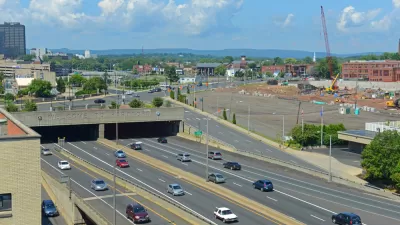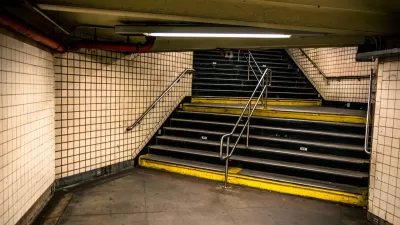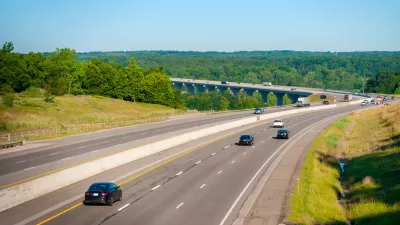An author and educator calls on a new generation of Americans to challenge the status quo and overcome the limitations and impacts of the country's existing infrastructure.
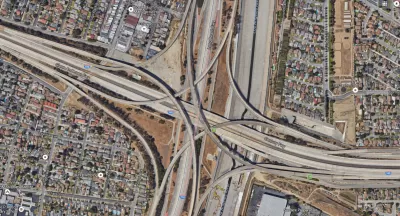
Jeffrey D. Sachs, professor and director of the Center for Sustainable Development at Columbia University, as well as the author of The Age of Sustainable Development, writes an op-ed for the Boston Globe calling for a new era of sustainable infrastructure.
According to Sachs, infrastructure is a generational challenge, and this generation is tasked with moving beyond the automobile.
The Automobile Age has run its course; our job is to renew our infrastructure in line with new needs, especially climate safety, and new opportunities, especially ubiquitous online information and smart machines.
Although Sachs acknowledges that the country has been neglecting its infrastructure as it deteriorates around us, Sachs says future infrastructure investments must focus on the long term. For a point of comparison, Sachs offers the infrastructure spending of the 2009 federal stimulus package, which focused on shovel-ready projects and jobs creation.
I PROPOSE THE opposite approach to short-term “stimulus.” I’d call it “long-term thinking,” even “long-term planning” (to use an idea that is anathema in Washington). Rather than trying to deploy construction workers within the next 60 days, I propose that we envision the kind of built environment we want for the next 60 years.
Sachs concludes the op-ed with a call to the current generation of planners, engineers, and citizens to use their imagination in envisioning the cities and rural areas of the future, and the kinds of infrastructure that will underpin their communities.
FULL STORY: Sustainable infrastructure after the Automobile Age

Pennsylvania Mall Conversion Bill Passes House
If passed, the bill would promote the adaptive reuse of defunct commercial buildings.
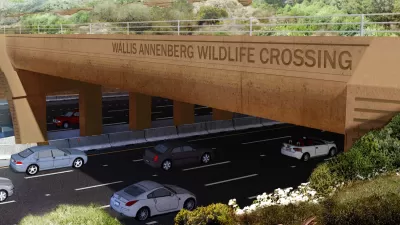
World's Largest Wildlife Overpass In the Works in Los Angeles County
Caltrans will soon close half of the 101 Freeway in order to continue construction of the Wallis Annenberg Wildlife Crossing near Agoura Hills in Los Angeles County.

U.S. Supreme Court: California's Impact Fees May Violate Takings Clause
A California property owner took El Dorado County to state court after paying a traffic impact fee he felt was exorbitant. He lost in trial court, appellate court, and the California Supreme Court denied review. Then the U.S. Supreme Court acted.

California Grid Runs on 100% Renewable Energy for Over 9 Hours
The state’s energy grid was entirely powered by clean energy for some portion of the day on 37 out of the last 45 days.

New Forecasting Tool Aims to Reduce Heat-Related Deaths
Two federal agencies launched a new, easy-to-use, color-coded heat warning system that combines meteorological and medical risk factors.

AI Traffic Management Comes to Dallas-Fort Worth
Several Texas cities are using an AI-powered platform called NoTraffic to help manage traffic signals to increase safety and improve traffic flow.
City of Costa Mesa
Licking County
Barrett Planning Group LLC
HUD's Office of Policy Development and Research
Mpact Transit + Community
HUD's Office of Policy Development and Research
Tufts University, Department of Urban and Environmental Policy & Planning
City of Universal City TX
ULI Northwest Arkansas
Urban Design for Planners 1: Software Tools
This six-course series explores essential urban design concepts using open source software and equips planners with the tools they need to participate fully in the urban design process.
Planning for Universal Design
Learn the tools for implementing Universal Design in planning regulations.























